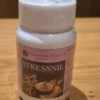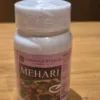Ayurvedic Treatment For Alopecia
Alopecia areata is a medical condition in which hair is lost from some or all areas of the body, usually from the scalp. Because it causes bald spots on the scalp, especially in the first stages, it is sometimes called spot baldness. In 1%–2% of cases, the condition can spread to the entire scalp (Alopecia totalis) or the entire epidermis (Alopecia Universalis).
Alopecia or alopecia areata is an acquired skin ailment that can affect all hair-bearing skin including the scalp, and beard, which is characterised by localised areas of non-scarring hair loss.
Current studies suggest that alopecia areata is caused by an abnormality in the immune system. Most of the cases are reversible to normal spontaneously with therapies and correcting certain factors.
Other findings that may be helpful are the appearance of short hairs that presumably represent split hairs, yellow areas of skin deposition at the follicular orifice, short thin hairs, and grey hairs all present in a bald area.
EFFECT OF ALOPECIA ON AN INDIVIDUAL
Although it is a harmless and painless condition that does not affect one’s physiology, many don’t think alopecia is worth medical attention but because society has placed so much emphasis on appearance, it is distressing and embarrassing to the individuals who suffer from this, it can significantly affect body image, self-esteem, and sexuality, this may cause the person to limit social activities leading to anxiety, this long-standing state of depression may further deteriorate the physiology of an individual.
Healthy hair is the reflection of a healthy body where the affliction of the former will not only have an impact on somatic make-up but also on psychological and social aspects of an individual, hair forms an important anatomical structure of the body which not only has a protective function but also adds beauty to the face. Increased industrialisation and urbanisation have posed greater danger due to pollution contamination of water, air, and food habits due to other intrinsic factors, hence there is a definite increase in the incidence of hair fall.
AYURVEDIC VIEW OF ALOPECIA AND HAIR LOSS
In Ayurveda Alopecia is termed Indralupta.
Indralupta is one among the Kapala (scalp) and Rogas (disease). According to Acharya Sushruta, Pitta (water and fire) associated with Vata (air and space) gets localized in the Roma (hair) and Kupa (roots) and causes the hair to fall, later on, Kapha (earth and water) associated with Rakta (blood) obstructs micro-channels to supply nutrients to the hair follicle, which results in falling of tufts of hair in that particular region and also preventing further regrowth of hair that leaves a bald patch.
CAUSES
The modern lifestyle, avoidance of head baths, usage of harmful shampoos, allergic manifestations, avoidance of Shiro (head) Abhyanga (massage), etc, leads to poor hygiene of scalp, vitiation of Dosha, and causes the loss of hair (Indralupta).
AYURVEDIC TREATMENT FOR ALOPECIA
Ayurvedic treatment for alopecia, since Doshas block the hair pores; the first step is to remove the blockage to promote regeneration of hair. Followed by external application to enhance hair growth, which includes herbal oil massage and Ayurvedic medicines. The whole process aims to reduce Pitta Dosha by purification of the body, according to the severity of the condition.
The course of typical alopecia areata in classical Ayurveda is predictable with certain factors based on the distribution and manifestation of the condition, like longer the period of hair loss and if larger the area involved, the less likely for the hair to re-grow.
Applying medicated oil to the scalp is very effective in controlling excessive hair loss. It improves blood circulation to the hair follicles and promotes hair growth.
Ayurveda also recommends Indian gooseberry for its cooling effect to treat Pitta Dosha. It is rich in vitamin C and antioxidants.
Aloe Vera has been used for ages to promote hair growth. It is thought to be an instrument to arrest hair fall and is highly efficient in the case of Indralupta. A natural antioxidant and blood purifier to cleanse the channels of your body internally as well as strengthen the immune system.
At Pranava Kerala Ayurveda Clinic- depending upon the involvement of Vata, Pitta, Kapha, and Rakta respectively, we offer many preventive and curative treatment measures for Indralupta like Pathyasevana (consume wholesome food), Apathya Nishedha (avoid unwholesome food), Rasayana (rejuvenate medicines), Abhyanga (Head Massage), Shirodhara (gentle pouring of medicated oil over the forehead), Shirolepa (medicated herbal paste application over scalp).
To find out more about how Ayurveda can help with the above condition, visit Pranava Kerala Ayurveda Clinic or call 0208 907 7902 to book an appointment with an expert Ayurvedic Practitioner.
Medical Advice Disclaimer
DISCLAIMER: THIS WEBSITE DOES NOT PROVIDE MEDICAL ADVICE
The information, including but not limited to, text, graphics, images and other material contained on this website are for informational purposes only. No material on this site is intended to be a substitute for professional medical advice, diagnosis, or treatment. Always seek the advice of your physician or other qualified healthcare providers with any questions you may have regarding a medical condition or treatment and before undertaking a new health care regimen, and never disregard professional medical advice or delay in seeking it because of something you have read on this website.




